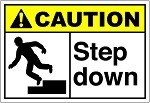By Jim Cline and Geoff Kiernan
 In State of Alaska, 133 LA 1436 (DiFalco 2014) an arbitrator ruled that the State properly paid Correction Officers who voluntarily demoted themselves back to a lower classification, even though the result was that they were paid less than if they had not been promoted in the first place. The arbitrator conceded that while the results of this were unfair to several Corrections Officers, he stressed that it was not his job to do what was fair but to interpret the contract language as it appeared in the CBA.
In State of Alaska, 133 LA 1436 (DiFalco 2014) an arbitrator ruled that the State properly paid Correction Officers who voluntarily demoted themselves back to a lower classification, even though the result was that they were paid less than if they had not been promoted in the first place. The arbitrator conceded that while the results of this were unfair to several Corrections Officers, he stressed that it was not his job to do what was fair but to interpret the contract language as it appeared in the CBA.
The issue arose under CBA language that defined pay for demoted officers, but specifically called out both demotions for cause and “voluntary demotions.”
E. Demotions:
- Demotions for cause: An employee who is demoted pursuant to Section 9.5 A (Employment Status), shall enter the new range at no less than the step occupied in the higher range or such higher step as may be determined by the Director of the Division of Personnel and Labor Relations.
- Voluntary Demotions: An employee who receives a voluntary demotion shall be paid at the step in the range of the lower class of positions that best reflects the earned step based on creditable State service. An employee who received a voluntary demotion except through reclassification will continue to receive wages, performance incentives and pay increments received by other employees.
The Union’s position was simply that the CBA requires that employees should not be penalized for demoting for purely personal reasons and that they should be placed in the same positon as other officers in their class with the same amount of state service. Furthermore the Union argued that the State violated a clear past practice by misrepresenting how they interpreted the term “creditable state service” and by doing that nullified several contract provisions.
The State asserts that the Union has failed to meet its burden of demonstrating that a contractual violation has occurred. It was the State’s position that the Union was requesting that the arbitrator add to the CBA language which reads that those whom voluntarily demote will go back to the same Pay Range and Step that he or she would have received had that person never been promoted. The State asserts that there is no such language currently in the CBA and it would be improper for the arbitrator to add it now.
The arbitrator concluded that there was an absence of language supporting the Association claim. He observed that “the fact that the parties have a relatively complicated pay structure obviously contributions to the confusion” of employees regarding their pay. He concluded that creditable state service did not include longevity steps that were based on merit.
While the arbitrator sympathized with the union, explaining that the end results of this provision were unfair to certain employees, he stated that he had little grounds for granting a remedy as arbitration is not a court of equity. He explained:
The Union could well argue the end result…is illogical, it must be noted that it is not the primary goal of labor agreements to be necessarily logical…It is the goal of all labor agreements to provide certain rights and remedies for bargaining unit employees…it not enough to first claim inequity; one must [first] prove a violation of a specific contract provision.
The arbitrator stressed the point that while this practice may have been unfair, a simple assertion of something being unfair is not enough to prove a violation of a contract. In order to do that, the Union must be able to point to a specific contractual provision which was violated. Anything else, he explains would be outside his power as an arbitrator.
Arbitrators like to be able to fix problems but we cannot invent contract terms to obtain a result preferred by one or even both parties. The Arbitrator does not write contact language but can only read…the language to them [the parties] when they cannot agree on what the negotiated.
The arbitrator held that the Union had not carried its burden of proving the manner in which the officers were paid after their demotions violated any provision in the CBA. The arbitrator explained:
“The mere application of equitable arguments, although understandable and even somewhat persuasive, does not constitute a substitute for proof by a preponderance of evidence of a contractual violation.”
The arbitrator also explained that that the Union could and should address this issue in subsequent contract negotiations.
This decision is questionable, at best. It is true, as this arbitrator observed, that most arbitrators do not view their role as determining the “fairness” of the result. Arbitrators have consistently stated that their job is to apply the language as negotiated in the CBA and apply it consistent with the parties intent.
The problem with the arbitrator’s reasoning here, though, that in fact they clearly wrote language distinguishing between those voluntarily demoted and demoted for cause. Those who voluntarily demoted were to retain their place based upon “creditable state service.” The arbitrator concluded, without clear explanation, that longevity steps awarded based on merit were not “creditable state service.” While approval was conditional, they were based upon time in grade. There may be some evidence that the parties intended for longevity steps not to fall within the definition of “creditable” time, but this written decision does not identify clear evidence for that conclusion.
**Visit our Premium Website for more information on Contract Interpretation and Wages.



